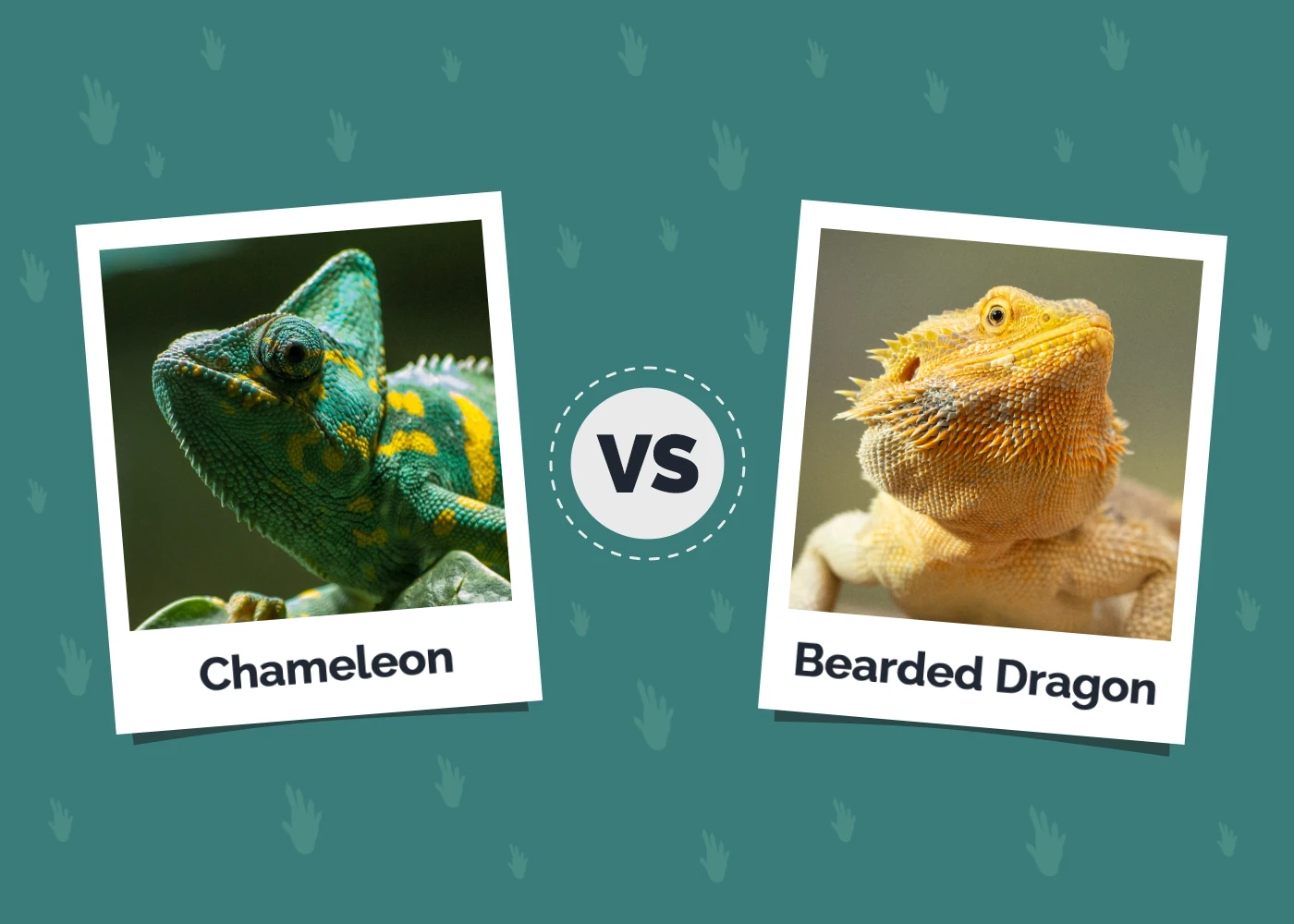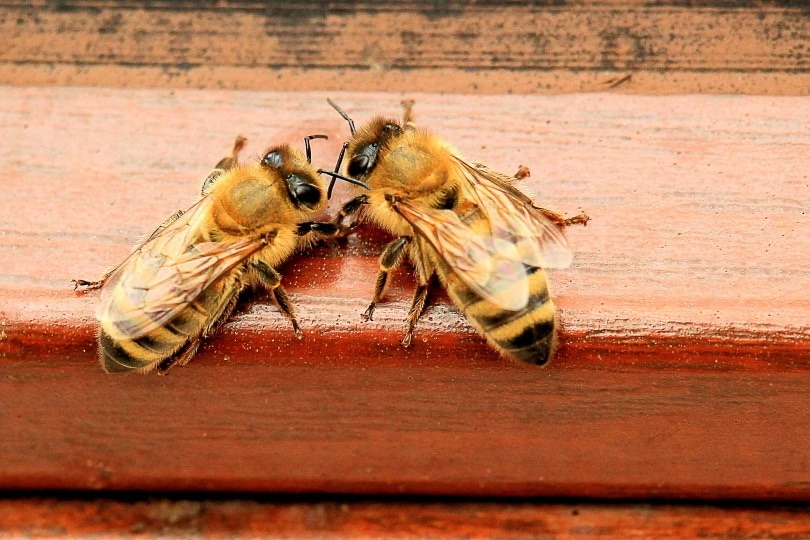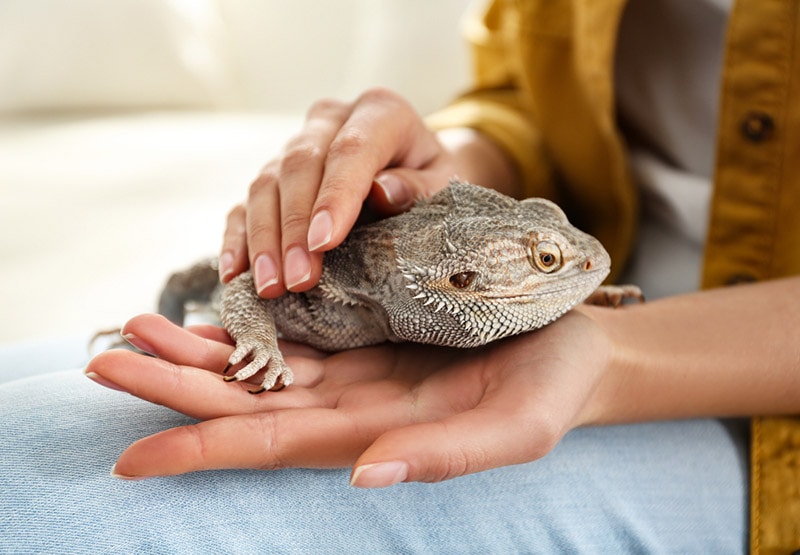Can Bearded Dragons Eat Rose Petals? Vet-Approved Facts & FAQ

Updated on
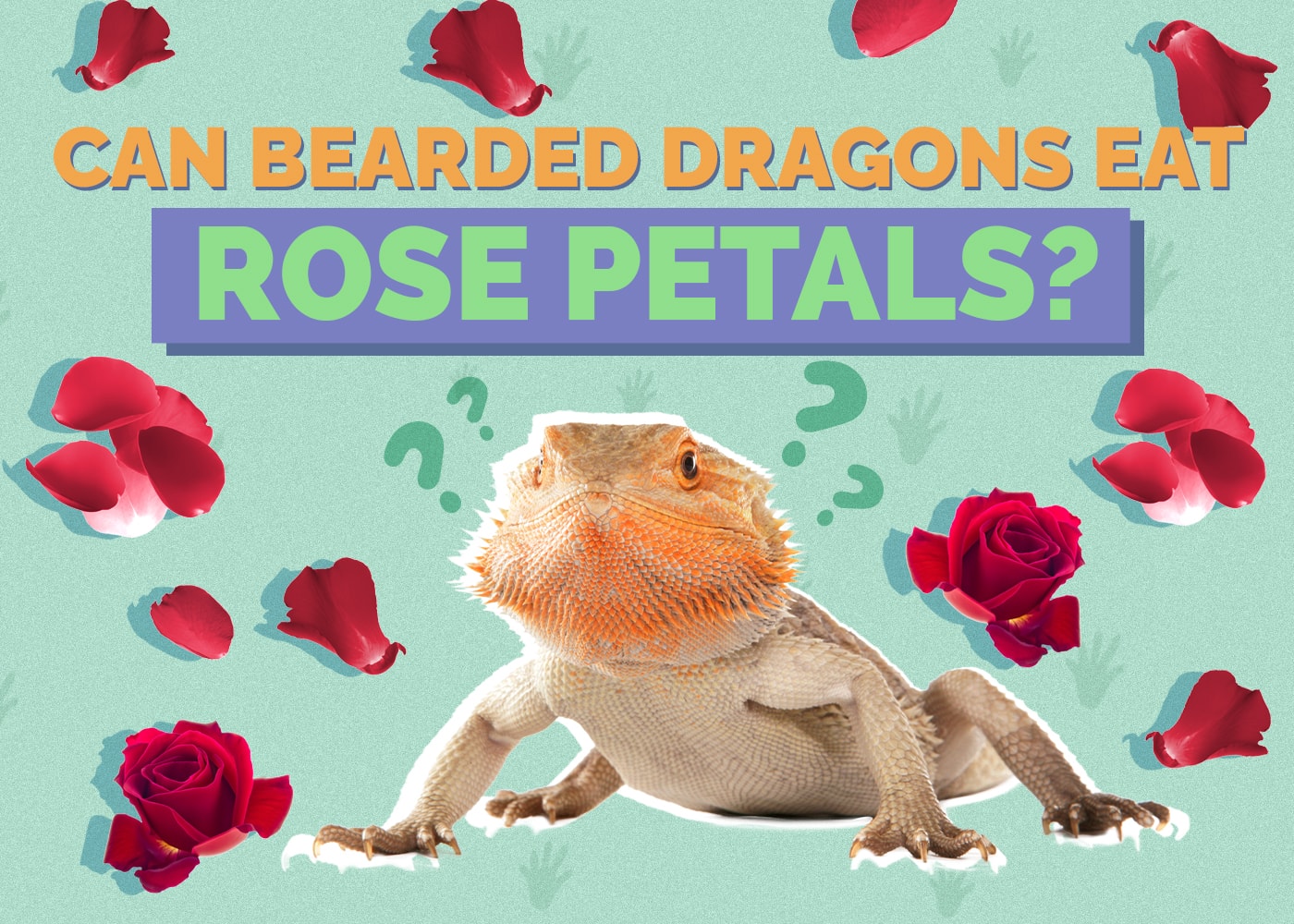
Click to Skip Ahead
Fresh from the flower, added to a salad, or in dehydrated treat form, rose petals are sometimes offered to herbivorous pets like hamsters, chinchillas, and guinea pigs. So you might be wondering if you can also feed them to your bearded dragon?
In short, yes, you can safely offer some of these fragrant and flavorsome snacks to your beardie, BUT they are basically empty calories, providing very little in the way of nutritional benefit. Being that their palate is quite different to that of the small rodents that normally love a rose petal snack, your beardie also may not enjoy them. However, if you would like to offer a tiny taste to your bearded buddy, it is safe to do so, provided they come from a reputable source and are free from pesticides.
Can Bearded Dragons Eat Rose Petals?
Rose petals are not very nutritious, but they are safe for beardies to consume. They aren’t toxic, so if your pet has eaten some from a table or off the floor, there’s no need to worry. However, their lack of nutritional value means that there’s no benefit to intentionally feeding them. If you are a multi-pet household and have some rose petal treats stashed in the cupboard, it is okay to offer a couple to your Bearded Dragon, but be aware that they may reject them.

Bearded Dragon Diet
Bearded Dragons are omnivores. In the wild, their diet is heavily determined by the habitat they occupy, and consists of a combination of animal and plant ingredients. In the wild, they have a big appetite, and spend a lot of their time hunting and foraging. In captivity, they don’t burn as much energy, so they don’t need to eat as much, but you need to provide a balanced diet that is representative of the mix of nutrients their natural counterparts consume.
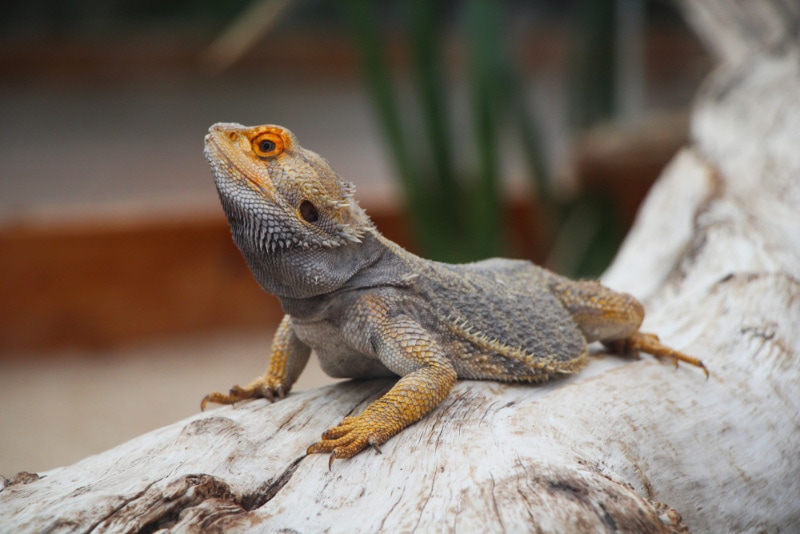
1. Insects
Although some wild Bearded Dragons will eat small rodents, the animal-based ingredients in their diet are usually made up of insects and other invertebrates. Pet beardies commonly consume Dubia roaches, crickets, and mealworms, among other creepy crawly items. The insects should be alive when fed, as most beardies will turn their noses up at dead prey.
You should also gut load the insects before feeding. Commercially bought insects tend to be nutritionally challenged, which means they offer less benefit to your pet than they should. Gut loading is essentially ‘fattening up’ the live food to maximize their nutritional value.
2. Plants
The other major part of a beardie’s diet consists of plants. Primarily, this means feeding leafy green vegetables. Collard greens, mustard greens, and turnip greens can be fed daily. Vegetables like bell peppers can be fed a few times a week and are beneficial because they are high in vitamin C, which can offer them a little immune boost.
You can also feed vegetables like broccoli, green beans or radishes, but these should be fed only once or twice a week. You can give a small amount of fruit every few days as a treat, but avoid citrus and avocado. Good options include apples, blueberries, and grapes.
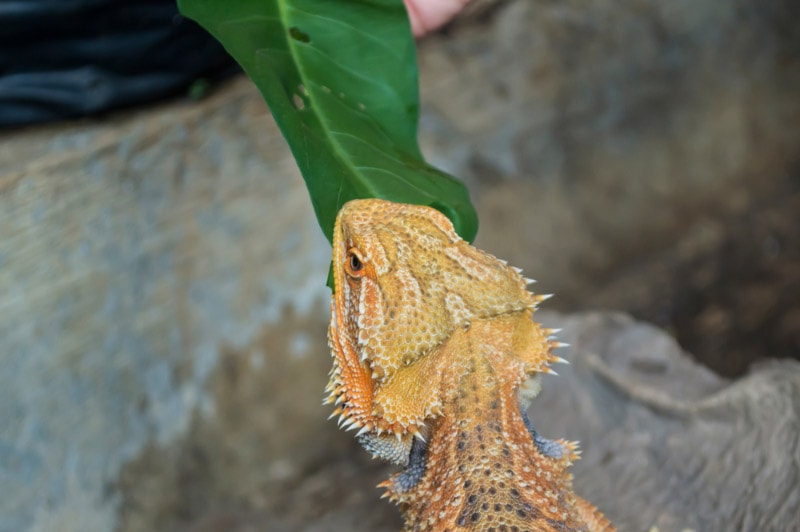
3. Supplements and Pellets
If you feed a well-balanced diet, your beardie should get most of the nutrients, vitamins, and minerals it needs from its diet, but offering commercial pellets can be a way of ensuring you are meeting their needs.
Some beardies may also benefit from being given supplements in some cases. For example, if they are not getting enough UV light, you will need to use a vitamin D3 supplement.
D3 is found in some calcium supplements, and because they do need a lot of calcium, especially if their diet is high in phosphorus, a calcium supplement is also beneficial. Supplements are usually sprinkled over food before serving.
Tips for a Healthy Bearded Dragon Diet
1. Their Diet Should Be 50%–80% Plant-Based
You should always follow your veterinarian’s guidance on diet specifics. Bearded Dragons are omnivores that consume both plants and insects, with the majority of their diet made up of live insects. Juvenile beardies need a diet consisting of around 80% insects, but by the time they become adults, their diet will hover around 60-70% animal protein, with the rest being made up of fresh greens.
2. Insects Should Be Live
If you’re squeamish and don’t like the idea of feeding live food, or if you don’t want tubs of crickets and roaches in your house, Bearded Dragons may not be the best choice of pet. The insects you feed need to be live so that they catch the attention of your Beardie. Dead insects will not be appealing to your lizard, and you will just end up having to remove them from the enclosure, uneaten.
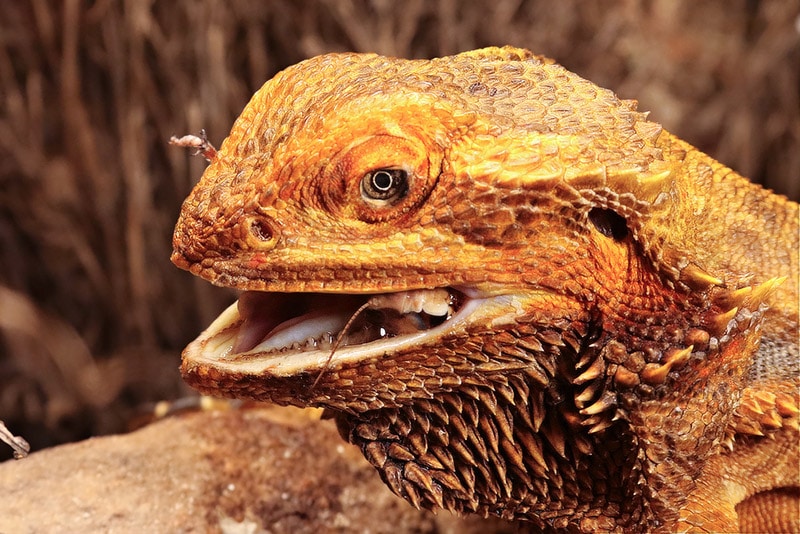
3. Gutload Insects Before Feeding
You will also need to get into the habit of gut-loading insects. Commercially bought insects may not have the nutritional profile that Bearded Dragons need, which means that you will have to feed them appropriate food to improve their nutrition levels to ensure your beardie is getting the maximal benefit.
Conclusion
Bearded Dragons are popular reptile pets because they are relatively low maintenance, and are more tolerant of handling than a lot of other reptile species. One of the more important aspects of owning a Bearded Dragon is ensuring that you meet their dietary and nutritional requirements, paying particular attention to the amounts of calcium and phosphorus they consume, and ensuring that they get their protein and fiber.
While rose petals are not toxic to Bearded Dragons, they do not offer much benefit, either, which means there is no real benefit to offering them as a food choice. But if you were to offer a small amount as an occasional treat, they will do no harm.
For some more vet approved information on what to feed your bearded dragon, check out What Do Bearded Dragons Eat As Pets?
See Also:


